YOUR JOURNEY - TRANSITION
Redefining well-being through the best practices of Jungian psychoanalysis
TRANSITION – Our response to change
“Change is an event, but a transition is the process that you go through in response to the change.” William Bridges
We are going to look at how important that period of transition is as without it we can find ourselves navigating the unknown not even knowing which direction to take. Transition is defined as “the process or a period of changing from one state or condition to another.” It is a word that encompasses so much of what is going on in the world right now. We are all in some state of transition and how we deal with any form of transition will dictate our future. I know it sounds rather dramatic but it’s true.
The stoics make a great point when they say focus on the process, not the outcome. You can’t control the outcome, but you can control the process and that is often the difference between change and transition. Change is something that can be immediate, and you have no control over it, while a transition is something you can always control.
I think William Bridges says it best, “Change is external, transition is internal.” Transition is the space we give ourselves to adjust, it is the space in between when we say goodbye to the old and welcome in the new.
TRANSITION –The dance of life
“The moment in between what you once were, and who you are now becoming, is where the dance of life really takes place.” Barbara De Angelis
The quote by Barbara De Angelis is the perfect way to think about transition, it’s where the dance of life really takes place!
Transition can be beautiful; we only need to look to nature to see it in all its glory. Days and nights transition through the beauty of sunrises and sunsets, the way the leaves change colour during autumn as winter lurks around the corner. And although at times it may not seem like it, if we take the time to “manage” the change that occurs in our own lives in much the same way, our results will also be beautiful. Transition is where you give yourself space to breathe, space to acknowledge, space to accept, and space to reflect so that you can reach a place of understanding, allowing yourself to move forwards, free of the baggage that change brought along with it.
Look back at changes that have occurred in your life – did you give yourself time to transition or did you do what so many of us are programmed to do, that is to just get over it and move on? When we immediately react to change as opposed to allowing ourselves the space to transition, we often find ourselves making decisions we will later regret.
TRANSITION – Giving ourselves space
“I am not what happened to me, I am what I choose to become.” Carl Jung
This quote always resonates with me because it is so empowering. Change is inevitable, it’s one of those things we have no control over. But we can choose what we become, in other words, we can choose how we respond – we can take that opportunity to give ourselves space to transition, to move forwards just that bit more gently.
We always need to give ourselves the space to feel, as change always has some form of emotion attached to it. I like to think of the process of transition as laying the foundation for how we move forward. Transition is by no means a lack of action; it is the preparation for the right action!
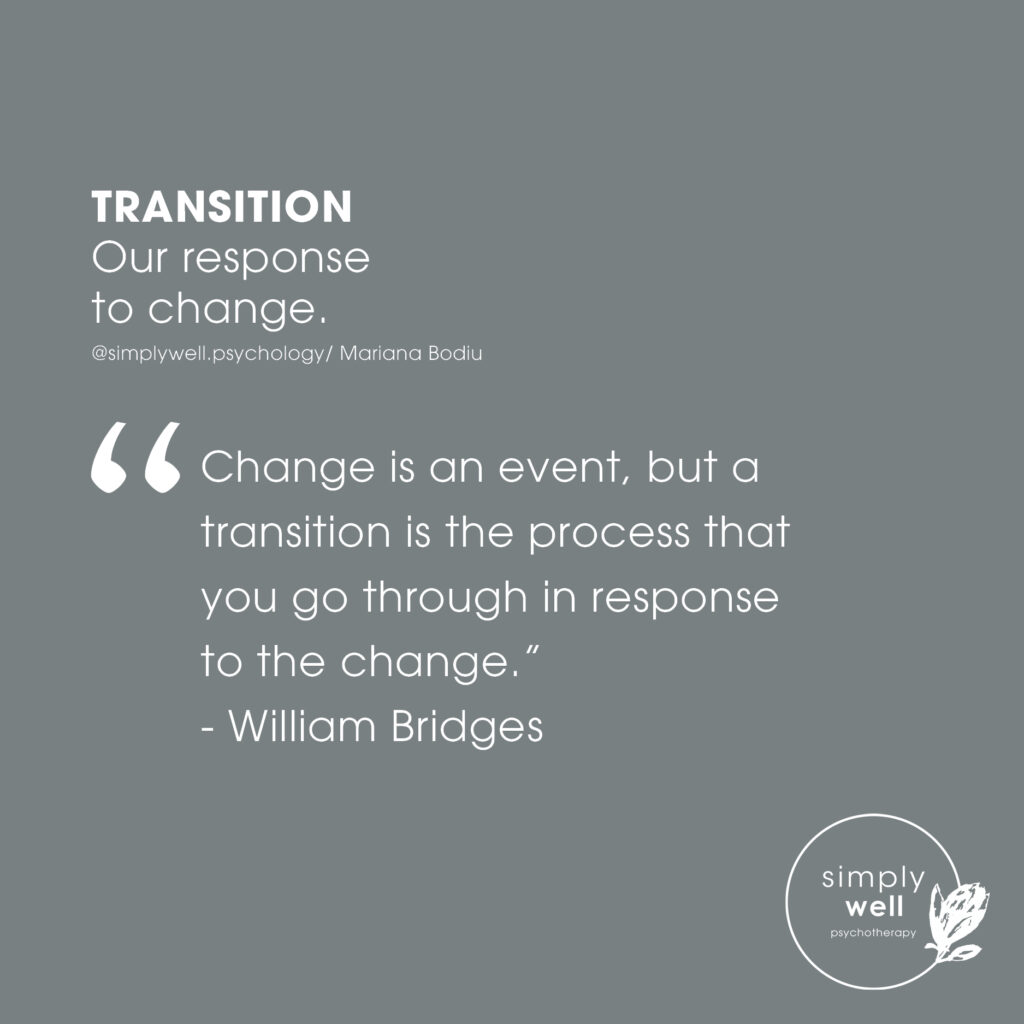

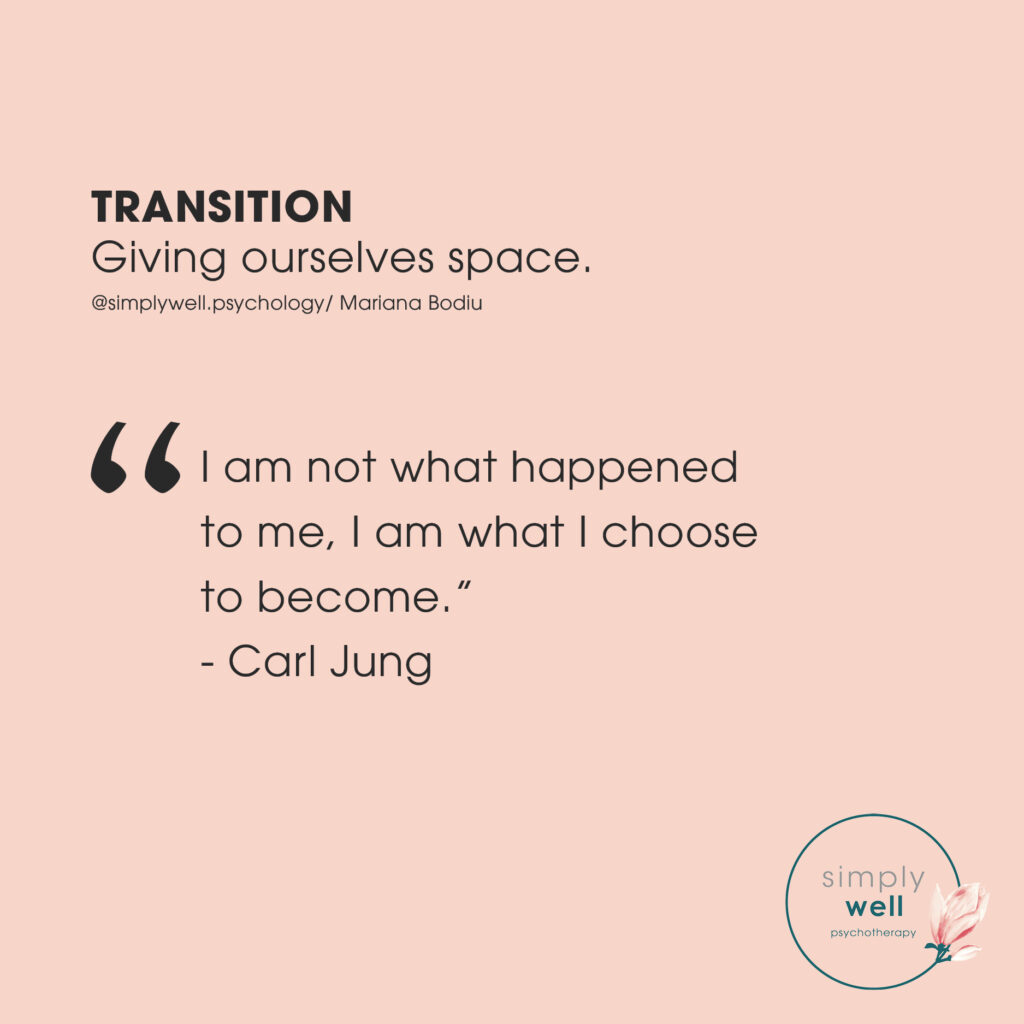
TRANSITION – The first step, acceptance
“Acceptance is observation of life and suspension of judgement about whether what is happening is good or bad, right or wrong.” Ron Smotherman
Our initial reaction to change is often one of great discomfort combined with a hundred questions, most of them often starting with the word why. Why me? Why now? Unexpected change never seems to happen when it suits us, and it probably never will. Even when those changes that you are anticipating arrive, they still have a tendency to come along with something unexpected. It is difficult to look forwards when in the midst of any life-changing event, we tend to rush into survival mode as we can’t see beyond what is happening right now. We often rush to make decisions, not because they are necessarily the right ones but making decisions gives us some sense of control.
Our first step along the path of transition is acceptance. We need to accept where we are right now. If you are like me, you rush into planning mode – nothing like a list of action items to get me through this. And although there is nothing wrong with that as you can’t sit around hoping the change will go away but you need to take the time to accept what is happening right now. No questions. No judgement. No action plans.
Just that quiet space of acceptance and acknowledgement that change has occurred, that things are going to be different.
TRANSITION – the act of acceptance
“We cannot change anything until we accept it. Condemnation does not liberate, it oppresses.” – Carl Jung
Accepting that change has occurred sounds easy enough, but it is so much more than simply accepting your life has changed in some way. It is also about acknowledging how this change has made you feel and accepting these emotions. This is a step that so many of us avoid, delving into emotions is not something that we naturally want to do – but it is exceptionally important for our growth to acknowledge the emotions and accept them without judgement.
For whatever reason, our lives have changed, and there is no going back no matter how much we would like to. Sometimes, we spend far more time trying to find ways to keep things the same, that we don’t move forwards. And at other times we imagine the worst-case scenario and paralyse ourselves with fear – personally, nothing has ever come close to the worst-case scenarios that I imagined.
We don’t see the possibilities and we inevitably can’t as we are caught up in a whirlwind of emotions. We need to create space so that we can see clearly. To see clearly, we need to clear our brains, slow down the hundreds of thoughts, and one of the best ways to do this is to write. Don’t worry, you don’t need to do that right now. For the moment, if you are not currently going through some form of change, look back and choose one to delve into. (And if you’re not sure which one, it’s that one you don’t want to write about!)
TRANSITION – acceptance through acknowledgement
It’s time to clear our brains, to create that all-important space for growth and reflection and we can’t do that when our brains are inundated with past and present emotions and fears for the future. As I said, this can be about a current change you are going through or a past one that impacted your life in some way. All you have to do is simply sit down and write, and transfer all of your thoughts and emotions into your journal. Write as you think, it doesn’t need to flow as if you were writing a story, it’s just about getting them down onto paper.
Write about what is happening right now, write about your emotions, express your anger, your fear, your resentment, your grief – it is a space where your “ramblings” can be expressed without judgment. This transitionary period is the perfect time to look at your emotions and gain an understanding of where they are coming from, as only then will you know how to deal with them.
As Dr Phil says, “You can’t change what you don’t acknowledge.”

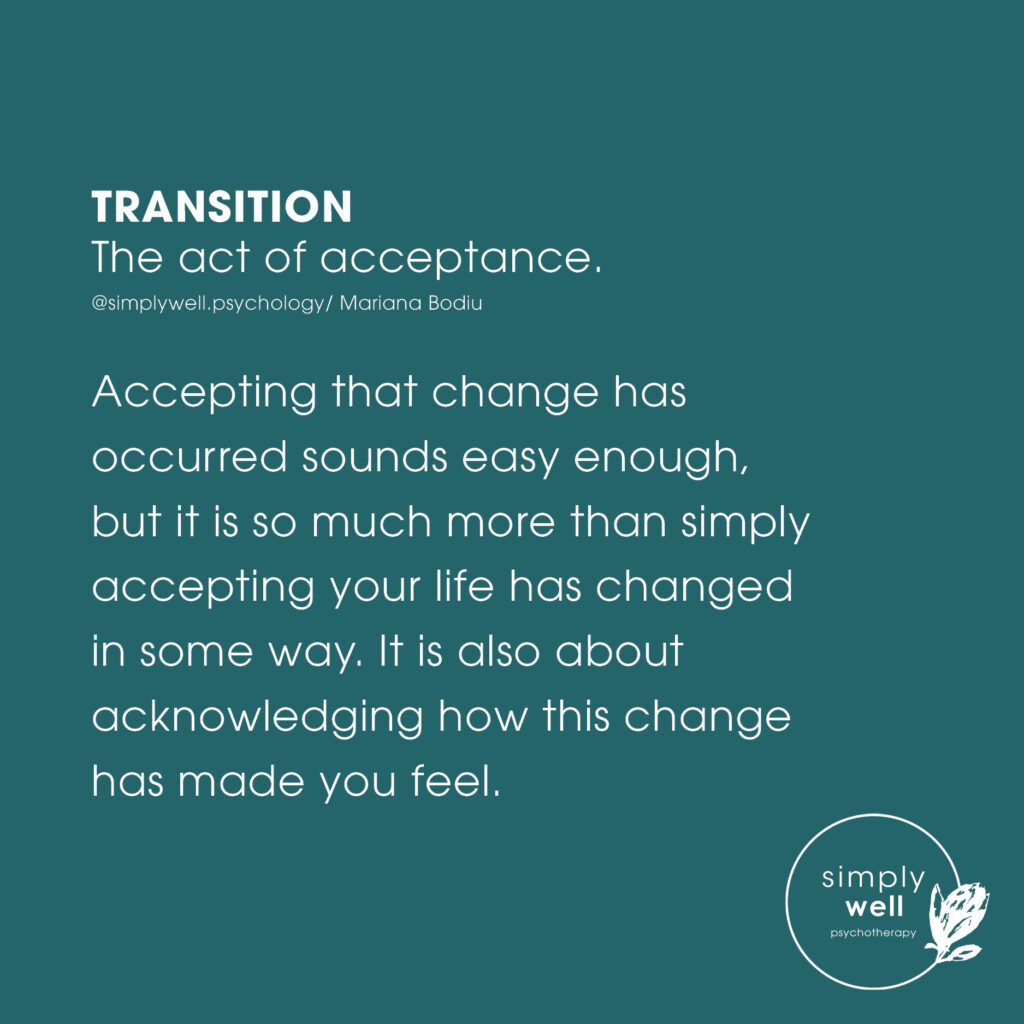
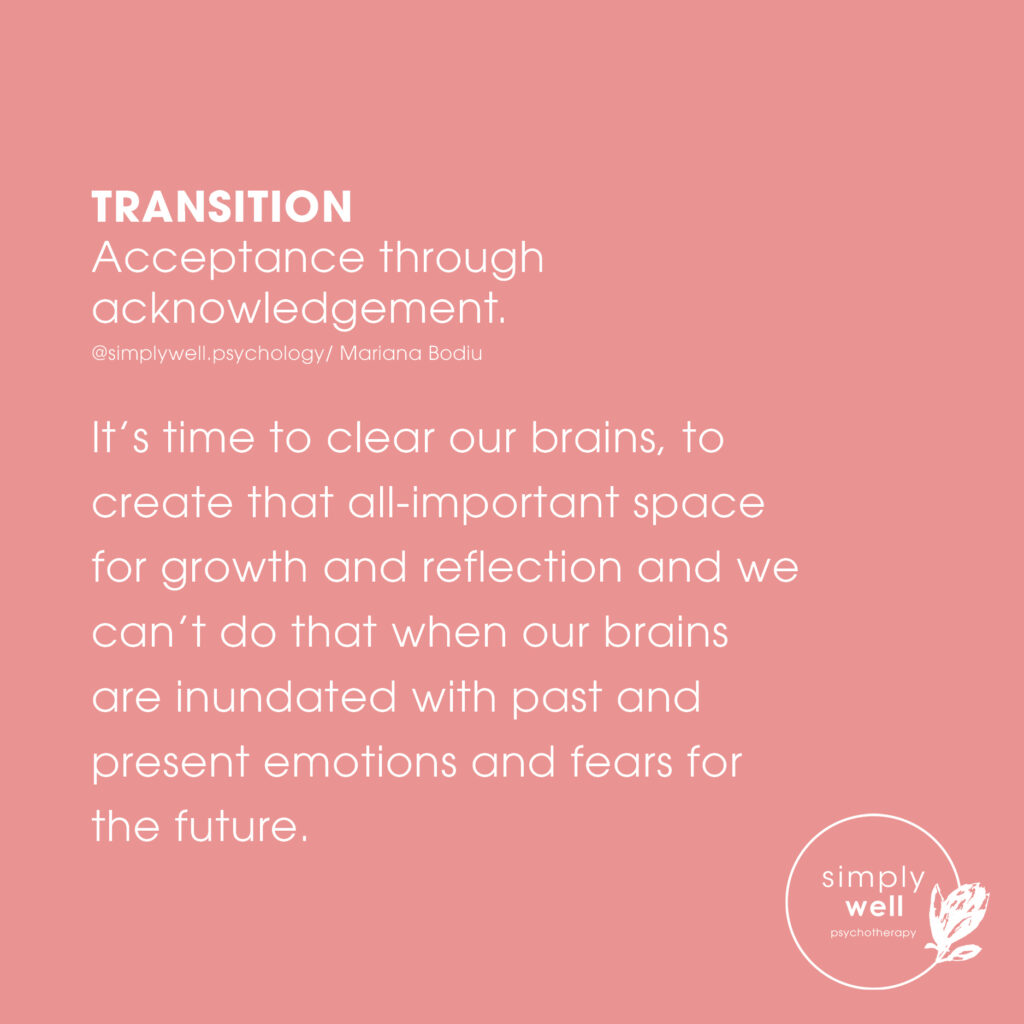
TRANSITION – understanding through reflection
The act of writing always provides us with unexpected insights into how we behave and think. Many of us are living on autopilot and we stick with what we perceive has previously worked for us, and to some extent it has. But that does not mean it has made us stronger or benefited our personal growth. We often don’t take the time to see if there was a better way we could have handled that particular situation. Reflection is important as it forces us to look at ourselves, to look internally. It is the only way we will gain an understanding of how and why we react to certain situations the way we do.
There are always questions to ask yourself in response to how you handle change. Perhaps you don’t give yourself enough time to heal in between relationships and then you will need to ask yourself questions like why you don’t want to be alone.
Sometimes it isn’t about handling the situation differently, sometimes it’s like Viktor Frankl says, “When we are no longer able to change a situation – we are challenged to change ourselves.” We may need to learn patience, we may need to learn forgiveness, or we may need to learn the subtle art of understanding that we can’t control everything.
TRANSITION – its a transformation
“Times of transition are strenuous, but I love them. They are an opportunity to purge, rethink priorities, and be intentional about new habits. We can make our new normal any way we want.” Kristin Armstrong
The word transition can sound deceptively gentle and easy and they are definitely not always gentle or easy. Another word for transition is transformation and I think that is rather apt.
We only need to look at how the pandemic forced a period of transition on all of us. Our lives have been inexplicably transformed and we were forced to deal with both the positives and negatives that were involuntarily thrust upon us. Some of us ate our way through lockdown while others used the opportunity to improve themselves – and in case you’re in any doubt, just look at Rebel Wilson’s complete transformation after dedicating 2020 as her year of health.
The way we work has also been changed with the introduction of remote working which provided many of us with that much-needed time with our families. The pandemic was a prime example of transition, it contained just about every emotion from fear to frustration, to losing control and being completely restricted. But it did provide many of us with time to think, time to reprioritise, time to create new habits, and the time to take advantage of new opportunities. And that’s what transition and transformation should be about, making our new normal into any way we want!
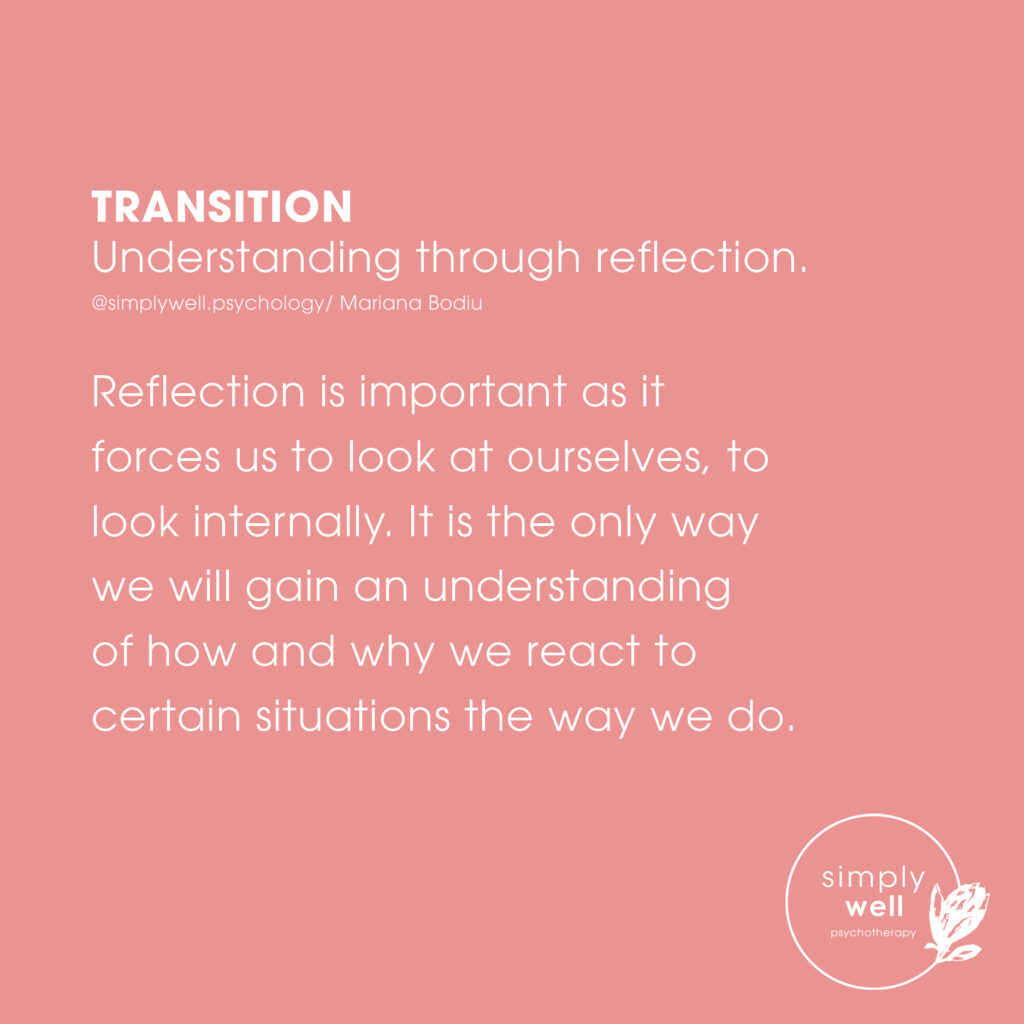


TRANSITION – changing our perspective
“If you change the way you look at things, the things you look at change.” – Wayne Dyer
We all have the incredible ability to become intentional and change our thoughts and perceptions. When we begin to change our perspective and see things in a different light, those very things that caused us so much stress, tend to look a lot less frightening. They tend to turn into opportunities.
Changing your perspective requires a shift within ourselves and the world can look a lot less gloomy – after all we are here right now, still standing despite all the changes that we have survived. We just need to remember that surviving is not the only way, transitioning is far better, giving ourselves the time to embrace the change and make the right decisions should always be our first port of call. Yes, it all goes back to letting ourselves create that space between the old and the new.
TRANSITION – saying goodbye
“All changes, even the most longed for, have their melancholy; for what we leave behind us is a part of ourselves; we must die to one life before we can enter another.” Anatole France
The above quote may at first seem rather depressing but we need to leave that part of our life that has changed forever behind us. We need to start afresh. It does not mean that we forget that part of our life, we take the happy memories and the lessons learned along with us into the new chapter of our story.
One of the ways Randi Fine refers to transitions is as “uncomfortable ends followed by hopeful new beginnings”. The end of anything comes with an array of emotions – they may be ones of happiness that an uncomfortable period in our life has ended or alternatively, they may bring a host of emotions to the fore – fear, grief, sorrow, or regret. We can feel overwhelmed, anxious, helpless and at times scared. Negative emotions are not bad, they are not something we should ever suppress – we experience them for a reason.
But now is the time to wish them farewell as we are moving forwards.
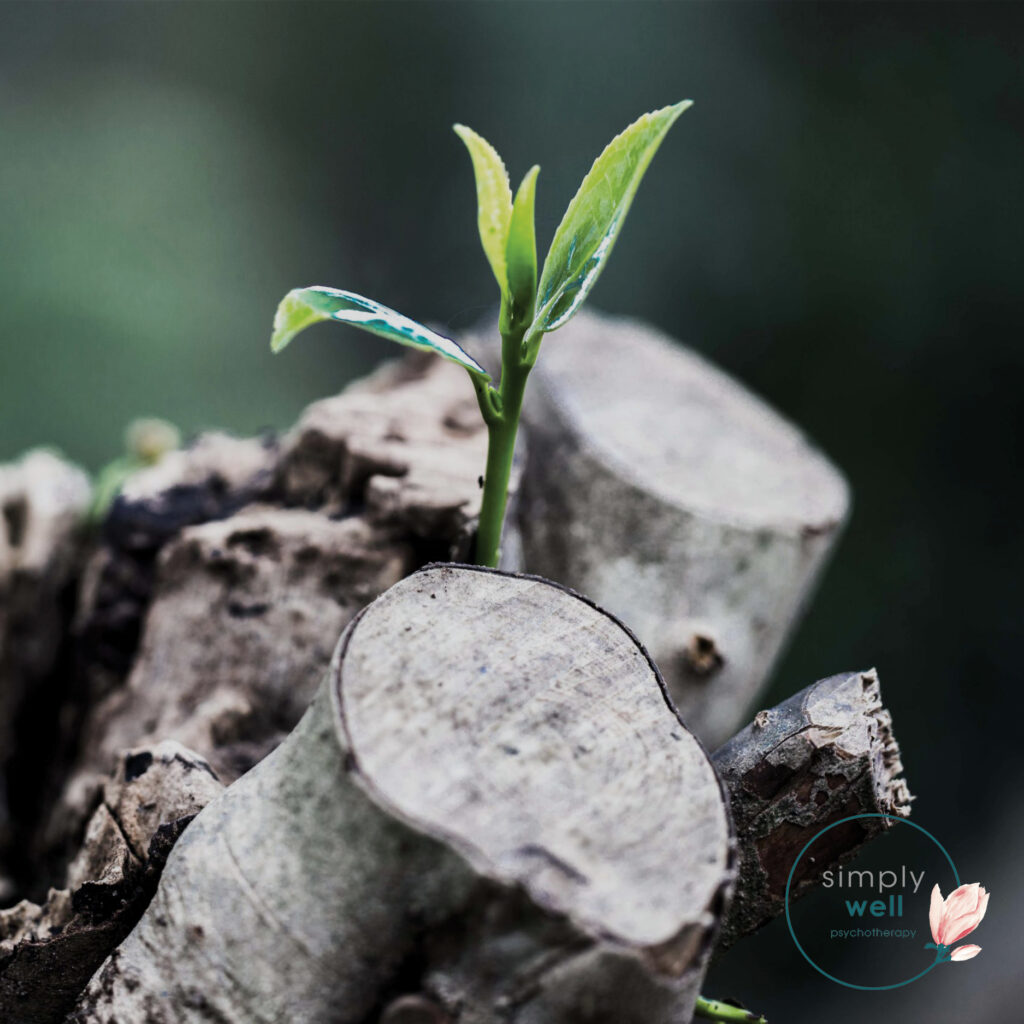
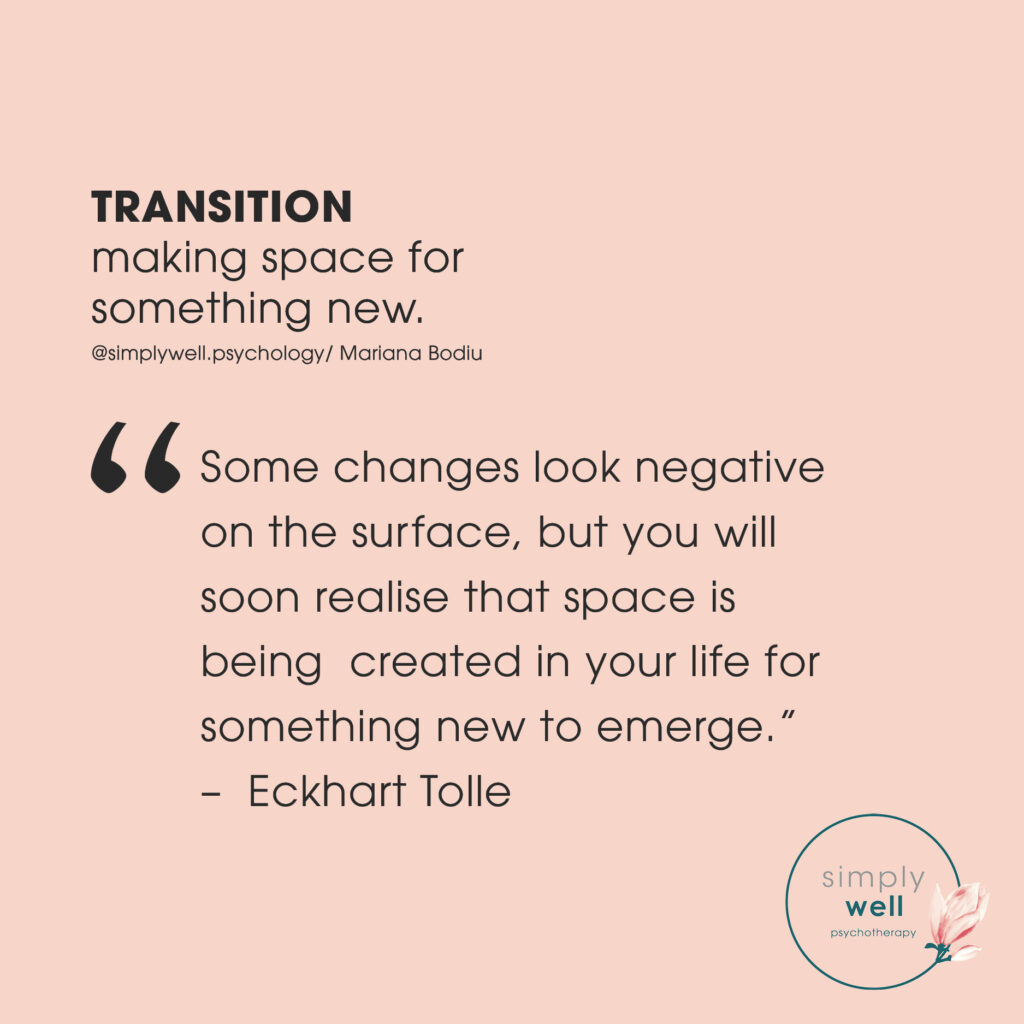
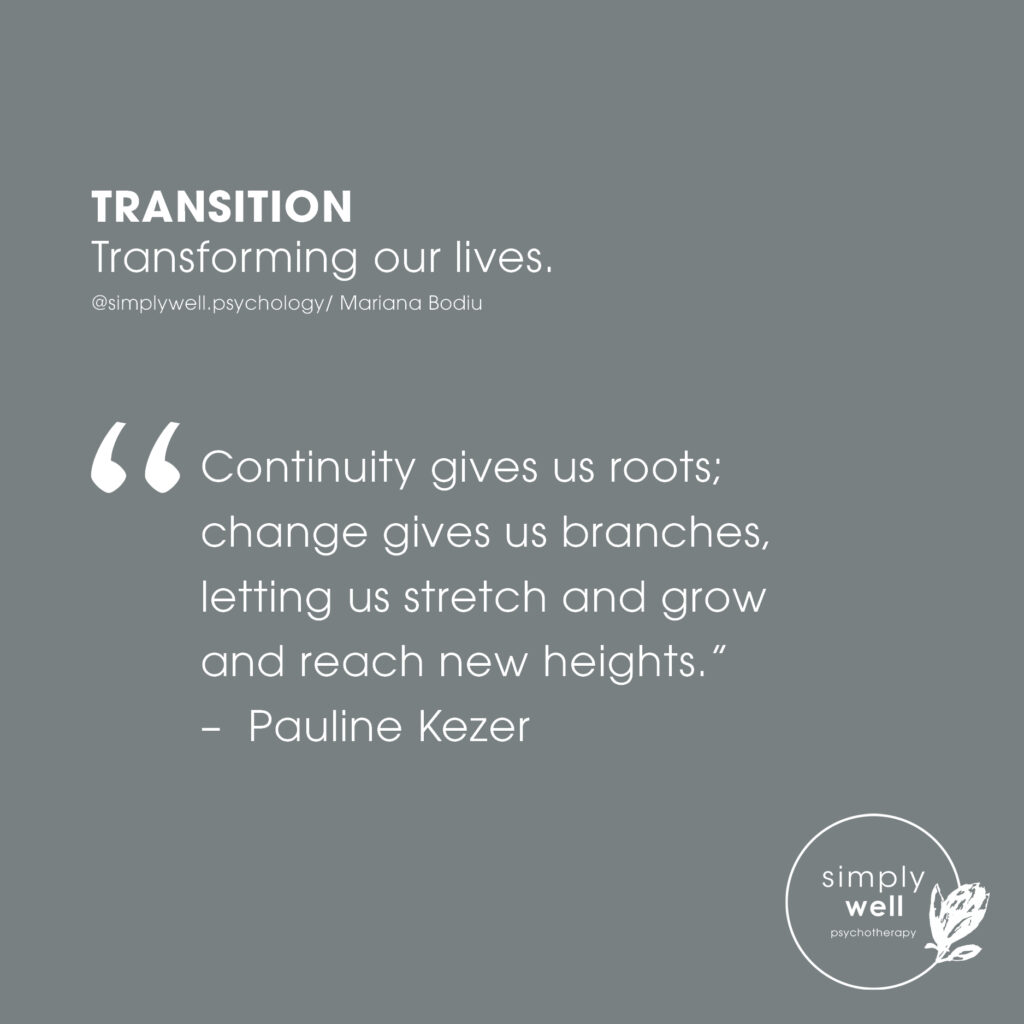
TRANSITION – making space for something new
“Some changes look negative on the surface, but you will soon realise that space is being created in your life for something new to emerge.” Eckhart Tolle
Just in case you hadn’t noticed, that wonderful word space is mentioned again! We need to ensure that we have created that space for something new to emerge. For something new to emerge, we need to be ready for it and we can only truly be ready when we have gone through the process of transition. Otherwise, this exciting new chapter will be marred by the baggage we bring along with us.
A transition can be a plan that you can put in place so that when change occurs you don’t resort to your default. Your transition plan will be personal to you but there are some basics that you should keep in mind. When change occurs, breathe. Accept that change is happening and remember you can’t control change, only how you choose to respond to it. Acknowledge your emotions, write them down and free your brain to think clearly.
Ryan Holiday recommends some advice from the stoics – “Don’t suffer imagined troubles, worrying won’t affect it…. don’t add to your suffering, there is no need to suffer in advance.”
Take the time to learn the lessons you need to with every change comes an opportunity to get to know yourself a little bit more and although we haven’t discussed this one, don’t be afraid to ask for help – sometimes we just need someone to listen!
TRANSITION – transforming our lives
“Continuity gives us roots; change gives us branches, letting us stretch and grow and reach new heights.” Pauline Kezer
Transitions are transformations, they are like the metamorphosis of the butterfly. I know it’s a bit cliched but is always a wonderful way to think about change. It is the movement in between that makes it beautiful and I cannot help but refer back to that marvelous quote by Barbara De Angelis – “The moment in between what you once were, and who you are now becoming, is where the dance of life really takes place.”
So when change knocks on your door, as it will – think about it as the dance of life, the space in between the old and the new.

